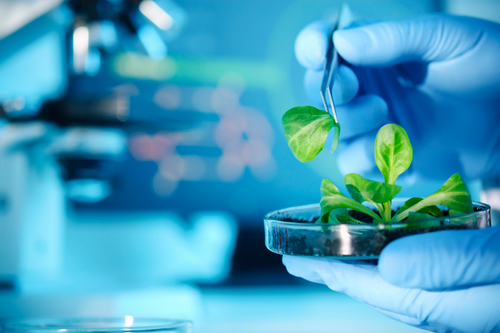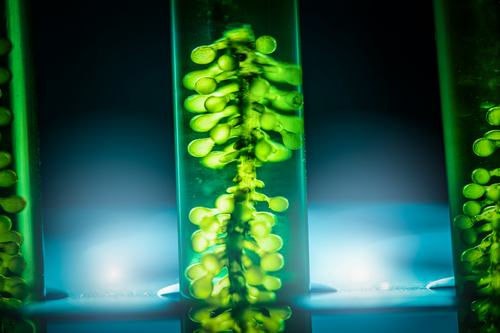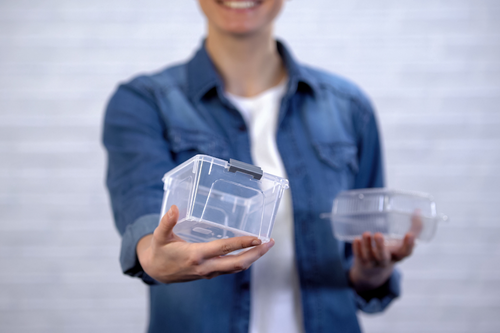Many industries are turning to biotechnology as it is a better alternative to polluting materials and chemical processes for climate change initiatives. By using biotechnology, industries are replacing polluting materials and chemical processes with more sustainable solutions. With years of evolution, the scientific field has specialized in producing and recycling different materials and components. There are processes that can break down waste and create materials that produce lower pollution and require lesser land, water, and energy use than traditional methods.
There is a lot more to the field of biotechnology and we are about to uncover them in this blog.
What is biotechnology?
Biotechnology is a technology that uses biological systems or living organisms to develop products such as biofuels, environmentally friendly chemicals, novel functional materials, nutritional compounds, and certain drugs.
Biotechnology can also be defined as the process that changes small parts of the genetic map of plant or animal cells with the help of microbes. The biotechnology revolution with stem cell therapy¹ holds a lot of healing benefits.
Why is biotechnology used in the clean energy sector?

With the need to decrease carbon emissions, the energy sector is using biotechnology, among others, to reduce global warming to below 2º C.
There are four benefits of using biotechnology to create fuels-
- Less dependence on traditional fuel.
- Viable income alternatives for the primary sector.
- Elimination of toxic emissions caused by traditional fuels
- Waste reduction
Biomass uses organic matter like agricultural and animal waste, cellulose, etc., which can be used to obtain heat and electricity through various processes. One of the processes is combustion or the use of gases generated by their decomposition. Through this, biotechnology helps generate fuels with a neutral balance of emissions.
There may be some negative consequences of using biotechnology that could involve people’s longstanding cultural and religious traditions that forbid trans-species reproduction, ban the consumption of specific food groups, or mix different food groups. Biotechnology can be interpreted as contrary to some of these religious traditions. To avoid such consequences at local levels that can have global repercussions, the crops must be managed ethically. This is possible through the promotion of a new generation of cellulose-derived fuels (also known as biofuels).
How is biotechnology changing our lives?
Biofuels

Renewable biofuels can be produced from sources like vegetable oil, algae, animal fat, grease, and cellulosic material, such as wood biomass, crop residues, and dedicated energy crops.
Companies are utilizing the natural ability of some microorganisms to break down agricultural or forestry waste to produce fuels.
- The French Company — Global Bioenergies is working with Audi to produce gasoline from sustainable sources like wood chips or wheat straws.
- A Swiss Firm — Clariant is developing methods to turn agricultural waste into biodiesel.
- Solaga in Germany and AlgaEnergy in Spain are researching ways to produce fuel from sunlight and carbon dioxide using algae.
Since fossil fuels are a major reason for air pollution, alternatives like the production of biofuels from crops have become increasingly common.
Cultivated meat
Biotechnology can reduce the use of land, water, and energy for the cultivation of meat. This is possible by creating meat substitutes using small muscle and fat cell samples. Such methods will also reduce the production of antibiotics in meat as they will be made in sterile labs.
A U.S.-based company called Eat Just produced cultivated meat and in 2020, Singapore became the first country to approve of its commercialization. That same year other companies developing meat alternatives tripled their funding.
To name a few-
- The U.S. company — Finless Foods cultures fish cells.
- The UK — based Higher Steaks is growing pork.
- In the Netherlands — Mosa Meat makes beef burgers.
There are others working on replacing animal products such as sausages, egg white, dairy, etc.
Bioplastics

Waste produced from petrochemical plastic production plants and non-biodegradable plastic that is thrown into the ocean isn’t helping either. Bioplastics made from renewable resources can be recycled using biological processes which will limit the use of fossil fuels.
- Avantium in Amsterdam is on its way to making 100% recyclable bioplastics from forestry and agricultural waste. They are working with brands like Coca-Cola and Danone to create sustainable bottles and yogurt cups.
- A company in France — Carbios is using microbial enzymes to break down and reuse plastic.
Construction material
Construction materials like concrete need a lot of toxic chemicals and tons of water and energy to be produced. Even the production process generates high levels of carbon emissions that contribute to global warming. Construction biology has developed significantly over the last decade. Biotechnologies’ construction products are low-cost, environmentally friendly microbial biocements, and sustainable. Microbial polysaccharides are used as admixtures for cement.
- A startup in London called Biohm is looking into using mushrooms to produce construction materials.
- Green Basilisk in the Netherlands wants to increase the lifespan of concrete by embedding it with bacteria that can repair the material when it gets damaged.
- Biomason in the U.S. uses similar microbes to create cement tiles that have a low carbon footprint.
Conclusion

In the coming years, biotechnology will become commonplace as there will be more biotech companies. This technology will not only expand to homes but small towns as well and recycling will become easier. The healthcare sector will also see major changes as its expenditure is around $8 trillion worldwide, but biotechnology can reduce the cost.
¹ Stem cell therapy also known as regenerative, medicine, or stem cell therapy, promotes the repair response of diseased or injured tissue using stem cells or their derivatives.

